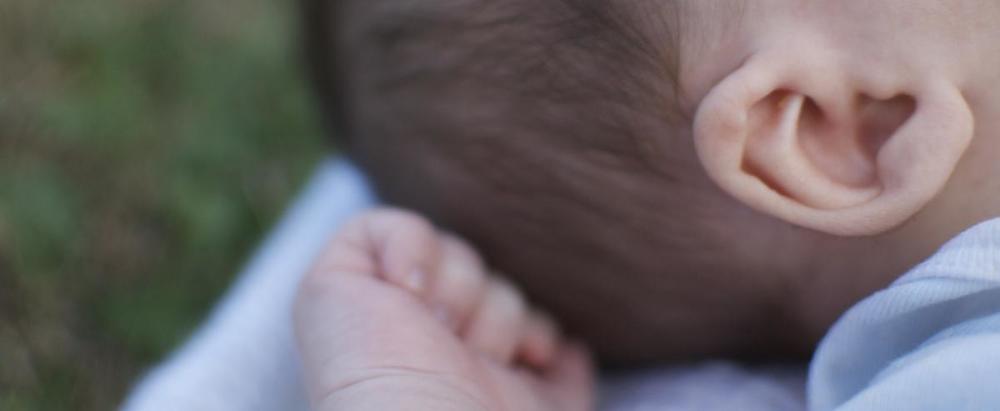
Early Hearing Detection and Intervention

The Early Hearing Detection and Intervention (EHDI) program ensures that all Georgia babies be screened for hearing loss before 1 month of age. The screening is quick, painless, and typically done before the baby leaves the birthing facility. Early identification of infant hearing loss and early treatment helps babies develop language, communication, and brain development.
Hearing loss is more common than any other condition screened for at birth. About 3 out of every 1,000 babies in the United States are born with hearing loss. Based on that estimate, each year, 375 babies are born with hearing loss in Georgia. The Georgia EHDI Program follows best practice guidelines outlined by the Joint Committee on Infant Hearing (JCIH, 2019) and recommends that:
- All babies are screened before 1 month of age, preferably before leaving the hospital,
- If the baby does not pass the initial or outpatient re-screening, a hearing evaluation is needed before 3 months. If hearing loss is detected, intervention and support services should be started by 6 months of age.
This 1-3-6 guideline was developed to give the baby the best possible time frame to be screened, diagnosed, and treated, if necessary. The earlier a baby is determined to have a hearing loss and begins receiving services, the more likely that speech, language, and social skills will reach their full potential.
What does the program do?
Along with the Newborn Metabolic Screening Program and Children 1st, the EHDI Program maintains and supports a comprehensive, coordinated, statewide screening and referral system. EHDI includes screening for hearing loss in the birthing hospital; referral of those who do not pass the hospital screening for rescreening; for newborns who do not pass the rescreening referral for diagnostic audiological evaluation; and, linkage to appropriate intervention for those babies diagnosed with hearing loss. Technical assistance and training about implementing and maintaining a quality newborn hearing screening program are provided to hospitals, primary care physicians, audiologists, early interventionists, and public health staff.
Why is the program important?
The most crucial period for language development is the first year of life. Without newborn screening, hearing loss is typically not identified until two years of age. Screening for all newborns before discharge from the hospital or birthing center is essential for the earliest possible identification of hearing loss and, consequently, for maximization of language, communication, educational, and reading potential.
More than half of babies born with hearing problems are otherwise healthy and have no family history of hearing loss. If your baby has hearing loss, you can still help your baby develop language skills. The sooner you act, the better the outcome. Screening for hearing loss as early as possible is important to your baby because:
- Early screening allows for early treatment if hearing loss is detected
- Early treatment can provide earlier sound stimulation for your baby's brain
Page last updated 6/6/2024